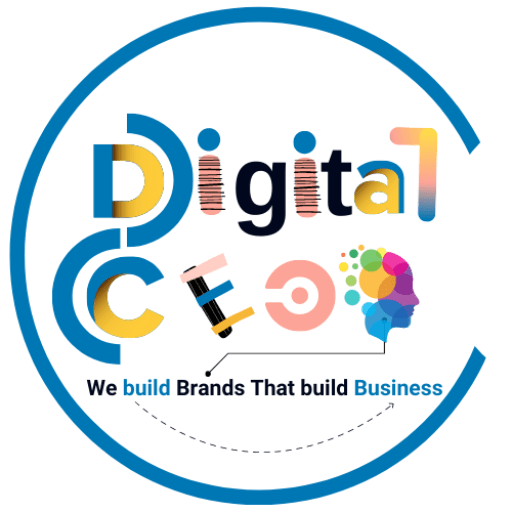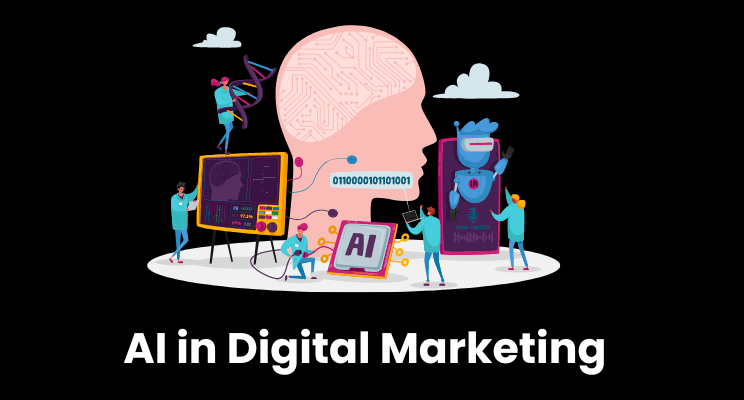Artificial Intelligence (AI) is an integral part of modern technology today, and it is changing the way businesses function in so many ways. This technology has evolved over the past few years, with digital marketing becoming one of the major areas of its application. AI has revolutionized the way businesses market their products and services, from email campaigns and social media ads to personalized customer experiences and predictive analytics; the technology is bridging the gap between consumers and businesses.
In this article, we shall look at the role of AI in digital marketing and try to answer important questions such as: how has AI changed the game in digital marketing? What are the advantages of AI in digital marketing? Is AI here to replace human marketers? Let’s delve right in.
AI in Digital Marketing – What is it all about?
AI is the ability of a computer or machine to perform tasks that would typically require human intelligence. This concept of AI has been around for a long time, but only in recent years have we started to see it applied to digital marketing. In digital marketing, AI uses algorithms that can analyze and process large amounts of data, making it easier to automate and streamline marketing tasks and campaigns.
AI has the potential to transform the entire digital marketing landscape. It provides marketers with tools to make better predictions, optimize campaigns, automate and personalize the consumer experience, and improve the return on investment (ROI) of marketing campaigns.
How Has AI Changed the Game in Digital Marketing?
AI has enabled digital marketing to be more streamlined, while also allowing greater levels of personalization to each consumer. Previously, much of the data that digital marketers collected was used in very broad strokes. Now, with AI, businesses can use data to laser-target consumers with personalized ads and messages. Personalization is a crucial factor that is driving customer experience.
For starters, the use of predictive analytics has changed the game in digital marketing. Predictive analytics uses machine learning algorithms to analyze and uncover patterns in data to make accurate predictions. This helps businesses to identify the most promising leads, segment their customer base, and offer highly-targeted ads. Predictive analytics is an important tool for marketers as it helps them to identify what marketing campaign will succeed or fail, thereby aiding in better decision-making.
Secondly, chatbots have revolutionized customer service. Chatbots are AI-powered tools that can interact with consumers in a conversational manner, answering their questions and even handling transactions. Chatbots work 24×7 and can handle multiple queries at the same time. This is a win-win for businesses as they can save on overhead costs without compromising on customer support services. Chatbots have the potential to change the entire customer experience as they can be programmed to provide a more personalized experience to each consumer.
Thirdly, AI has enabled businesses to use natural language processing (NLP) to analyze consumer sentiment to better understand their customers. NLP is a technology that allows machines to understand and interpret human language. This means that businesses can now use the words used by their customers on social media to uncover their feelings towards their products or services. This helps businesses improve their products and marketing campaigns.
Lastly, AI has enabled marketers to capture and analyze Big Data with great precision. This has led to the development of more accurate and powerful insights that influence the creation of successful marketing campaigns. AI algorithms can analyze data from multiple sources, including social media, search engines, and digital advertising platforms, making it easier to identify patterns and trends that can inform marketing decisions.
Advantages of AI in Digital Marketing
The benefits of AI in digital marketing cannot be overstated. Some of the key advantages of AI in digital marketing include:
1. Improved targeting and personalization – AI helps businesses to focus on the customers who are most likely to engage with the brand. This leads to more relevant and personalized marketing campaigns which ultimately lead to better customer engagement.
2. Cost-effective – AI-powered chatbots handle customer service requests faster, more efficiently and at a lower cost of what it would cost a human representative to handle the same queries. Businesses can also save on overheads by replacing human labor used to run email campaigns or AdWords with AI-powered marketing automation tools.
3. Improved decision-making – With predictive analytics, businesses can make better decisions based on data-driven insights. This helps them to determine what marketing campaigns will work and which ones to discard. It helps businesses to optimize campaigns for better ROI.
4. Enhanced customer experience – AI-powered chatbots provide immediate responses that are available 24×7. Businesses can achieve better customer satisfaction scores by offering immediate assistance to customers, thereby winning their loyalty.
5. Decoding consumer sentiment – With the help of NLP, businesses can gain insights into customer opinions and use this information to design more customer-centric products and services. This improves customer satisfaction, which can turn into increased sales.
Is AI Here to Replace Human Marketers?
While the advancements in AI have brought a new level of efficiency to digital marketing, it’s not plausible to say that AI will replace human marketers. Human experts are still required to develop strategies, review data, and measure performance. The role of AI is to assist human marketers in their daily operations, freeing time and resources that can be applied to higher-value activities that require a human touch, such as creating compelling content.
AI-driven machines can improve efficiency, reduce errors, and cut costs, but they can’t replace the value of a human mind and the creative aspect that humans bring to the table. A relationship of ‘man and machine’ is critical to succeed in digital marketing.
Conclusion
The role of AI in digital marketing cannot be ignored. The use of machine learning algorithms, predictive analytics, chatbots, and natural language processing (NLP) has revolutionized the way businesses engage with their customers. Marketing automation powered by AI is driving marketing efficiency and revenue growth.
Artificial intelligence in digital marketing is not intended to replace humans, but to complement them. Business leaders and digital marketers must leverage AI and machine learning to maximize their marketing potential if they are to stay ahead of the curve. Listening to, monitoring and responding to customer sentiment is critical. AI has made it possible to capture this invaluable information with greater ease than ever before.
As consumers become tech-savvier, their expectations for personalization, speed, and accessibility will only increase. AI offers us the ability to meet these needs, while making digital marketing more efficient and cost-effective. As such, both man and machine will remain critical collaborators in the new marketing landscape.

